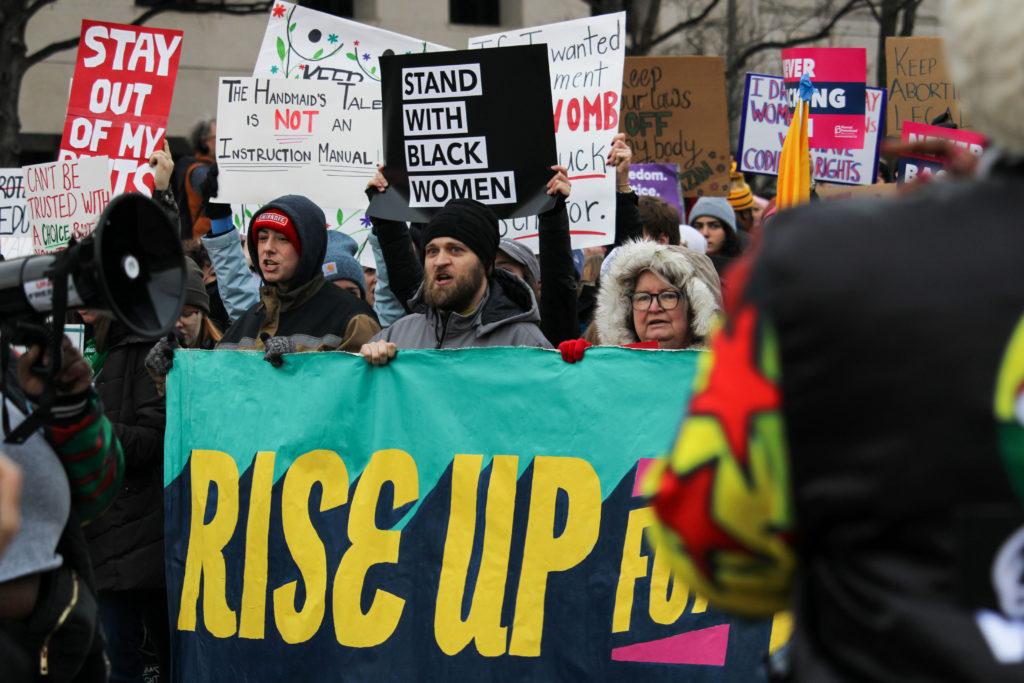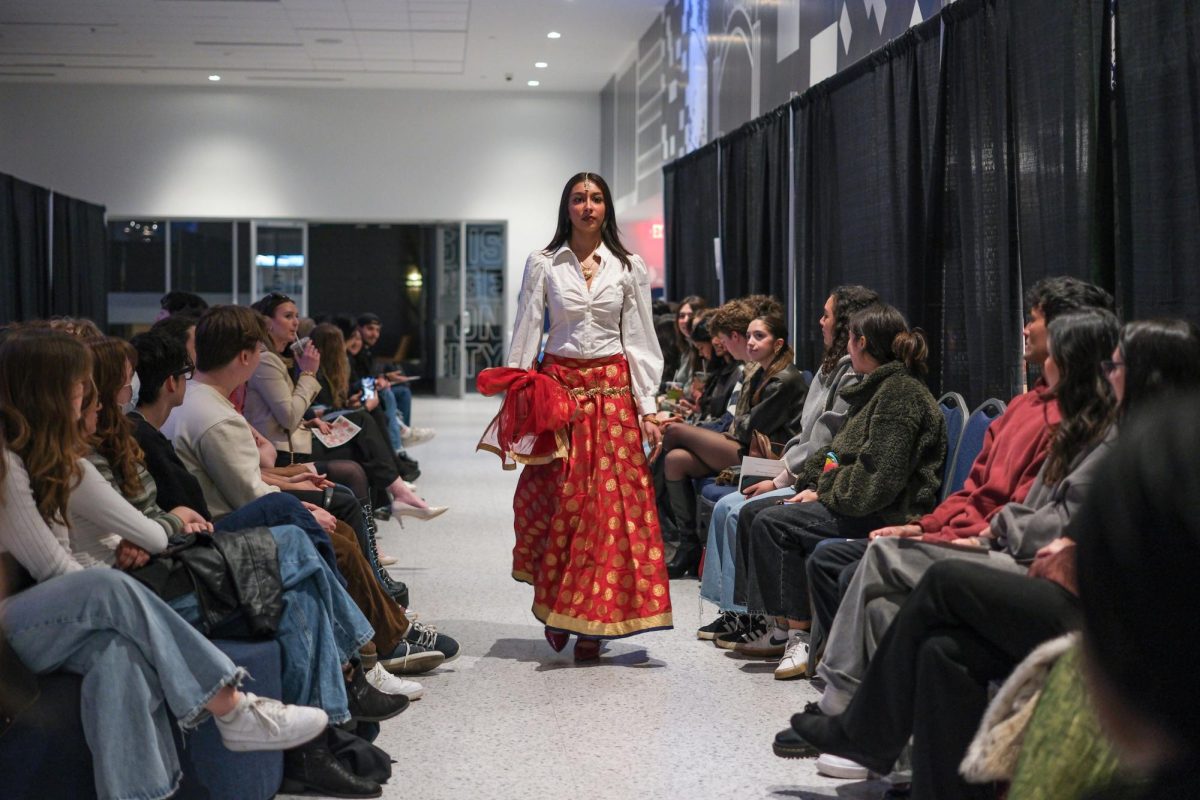Hundreds of pro-choice demonstrators gathered in front of the Supreme Court Sunday for the 2023 Women’s March, exactly 50 years after the landmark – and now-reversed – 1973 Roe v. Wade decision granted the constitutional right to abortion, with protesters calling on lawmakers to restore abortion rights nationwide.
Pro-choice protesters rallied across the country Sunday calling on lawmakers to codify abortion rights into law, with the central rally taking place in Madison, Wisconsin, to highlight the state’s upcoming special election which could alter the makeup of its Supreme Court and dictate the fate of statewide abortion access. Demonstrators in the District said they felt “frustrated” but “hopeful” in their calls to broaden abortion protections across the country following the 2022 reversal of Roe v. Wade.
Sena Waver, a D.C. resident and pro-choice demonstrator, said the pro-choice movement “really matters” to her because her grandmother had a life-threatening abortion in Romania when abortion was illegal in the country.
“I thought that we were over this, I thought that my grandmothers, they had to go through this,” she said. “And I thought that that was in the past now.”
Waver said she attended the Women’s March in 2017 to protest former President Donald Trump’s inauguration, a demonstration she said was broadly about women’s rights compared to this year, which focused on abortion rights. She said she is “not super hopeful” for the state of abortion rights over the next two years now that Republicans won control of the House of Representatives in the November elections.
Ommy Miranda Martone, a pro-choice demonstrator and a D.C. resident, said she decided to march this year to show that despite the Supreme Court’s reversal Roe v. Wade, limiting reproductive control is an “unpopular” decision lacking national support.
“If y’all don’t do what you said you were going to do, there’s other ways to get other parties in this country and there’s other ways to get things done,” Martone said.
Martone said she hopes to see lawmakers codify the right to abortion, a move she said lawmakers should have taken “a long time ago” under the Obama administration. She said it’s upsetting to see protesters continuing to demand action on reproductive rights 50 years after the Supreme Court established constitutional protections to abortion in 1973.
“We’re literally progressing past where we were in the ’70s,” Martone said.
Emma Hussey, a D.C. resident and a pro-choice demonstrator, said she hopes to see legislative protection from lawmakers on reproductive rights, making abortion legal on a federal level. She said she also hopes to see more inclusivity integrated into the pro-choice movement to ensure all people capable of giving birth are represented in conversations advocating for broadened abortion protections.
“It’s not just women, but individuals with uteruses,” Hussey said.
Hussey said it was important to her to march on the 50-year anniversary of Roe v. Wade to continue the legacy of fighting for reproductive rights that was led by the generations of pro-choice advocates before her. She said she felt “emotional” throughout the day’s march, even tearing up while witnessing the momentum of the march through the streets.
“Just to see the amount of people that have shown up and different people who have shown up to fight for what we believe in, it’s very, very powerful,” Hussey said.








